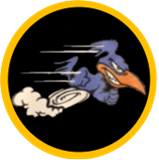Grade 5 & 6 Room 104
September 11, 2025
Room 104 – Grade 5/6
Welcome to Room 104 and the 2025-2026 school year! My name is Mrs. Gray (formerly known as Ms. Hladun) and I am excited to be your child’s teacher this year! Our learning year is about to begin and I am eager to see our community of learners grow together! Below, I have included a brief description of the concepts that will be covered in our classroom this year, as well as some information to ensure that your child has a successful learning experience. I am confident that we have a great year ahead of us!
Curriculum Overview
**Where possible, subject areas will be integrated, and will include the following:**
English Language Arts: Students will use language to listen, speak, view, read, write, and represent. They will learn different strategies to think about and understand what they read, see, and watch. Asking good questions about a research topic, creating and following a plan, and finding quality information to complete a research project is an important part of Grades 5 and 6. Students will learn to create messages, stories, and presentations that are clear and interesting for their listeners and readers. Students will also participate in daily phonics instruction and the Units of Study writing program.
Math: All students will develop mental math strategies to help with problem solving and math operations. They will learn through the strands of number, shape and space, patterns and relations, and statistics and probability. Students will be exposed to a variety of mathematical strategies. Grade 5 students will use diagrams, equations, and words to represent their personal mental strategies when problem solving. They will continue to work on multiplication and division, including the recall of facts up to 9 x 9 and multi-digit problems. Students will also continue to work on fractions and decimals. Grade 6 students will also use diagrams, equations, and words to represent their thinking in math with larger numbers. They will learn about factors and multiples. For a large portion of the year, we will focus on developing a good understanding of improper fractions, mixed numbers, ratios, percents, and integers. Students will use their prior knowledge of multiplication and division to apply to decimals.
Social Studies: Students will explore indigenous connections and perspectives as much as possible this year. We will begin by examining our current Land Acknowledgement and work together to create our own, fostering a meaningful and personal connection to the land and its history. Other topics that will be explored include Canadian history, geography, and citizenship.
Science: Through hands on learning investigations, research tasks, and different levels of inquiry, students will learn about topics such as the Properties of and Changes in Substances, Flight, Electricity, and Simple Machines. They will also take part in the design process.
Health: Students will utilize the Zones of Regulation program and Project 11 lessons to foster self-regulation, emotional control, and self-awareness. They will learn about living an active and healthy lifestyle. Students will also learn about making good choices for healthy eating, physical activity and safety, and about ways to avoid and deal with stress and conflicts.
Art: Students will explore ways to express themselves creatively, and continue to develop skills while using art language. They will think about the importance and meaning of the arts in their own lives, in their communities, around the world, and throughout history. Students will learn to think critically and talk about their experiences with learning the arts.
Goals and Expectations
Our class, and our school, make up a community of learners. We will share our strengths and work on challenges to help everyone succeed. We will nurture a caring environment where all students feel accepted, respected, valued, and safe. Students will follow the Robertson School rules of making good choices by listening to adults, showing respect, being safe, and being a learner. Reminder: Cell phones are not permitted during the school day as per government policy. Phones brought to school must either be kept in the child's locker/bag or be handed in to the teacher in the morning and will be returned at the end of the day. Cell phones brought to school are at your own risk; the WSD and Robertson School are not responsible for lost or stolen cell phones. If there is an emergency, please call the school to speak to your child instead of texting or calling their cell phone.
Assessment
Students will be assessed in an ongoing way – most frequently through observation and conversation – with some formal assessments along the way. These formal assessments will include a phonics Scope & Sequence, the Units of Study writing continuum, and the provincial curriculum. The goal of assessment is always to determine what a student is able to do and set appropriate learning goals to work towards.
Communication
I will be using Seesaw to make home-school communication easy. Please ensure you check Seesaw at least twice a week for valuable reminders, classroom updates, and snapshots from your child’s classroom learning. If you would like to reach me at any point during the school year, you can send me a message on Seesaw or call the school (204-589-4745) to set up a meeting. We are partners in your child’s education and I welcome your involvement! We have an exciting, enriching year of learning ahead of us!


